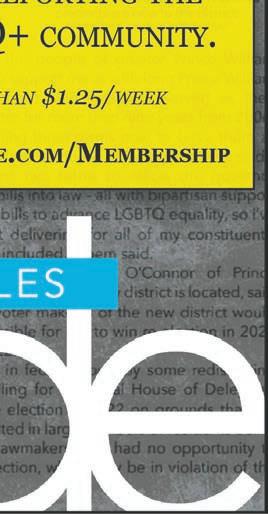




























































































Gov. Gavin Newsom signed California Senate Bill 729 into law on Sunday, giving California families unobstructed coverage for fertility treatments, in vitro fertilization and other family planning through major insurance plans and policies.
Senator Caroline Menjivar introduced the bill last spring and since then, Republicans have amassed an attack toward IVF and fertility treatments.
“California is a proud reproductive freedom state – and that includes increasing access to fertility services that help those who want to start a family,” said Gov. Newsom. “As Republicans across the country continue to claw back rights and block access to IVF – all while calling themselves ‘the party of families’ – we are proud to help every Californian make their own choices about the family they want.”
This is a landmark move for California – a state that, al-
though progressive – still used archaic standards and language to refer to a family dynamic and determine eligibility for family planning until this bill was signed into law.
The law now requires health plans to cover treatments starting July 1, 2025. An estimated 10 million Californians will now have full access to treatments and have the opportunity to become parents regardless of past sexual history, relationship status, medical history.
The new law will not apply to Medi-Cal managed care health care service plan contracts or any entity that enters into a contract with the State Department of Health Care Services for the delivery of health care services pursuant to specified provisions.
Earlier this year, a study found systematic barriers to fertility prevention for LGBTQ+ people on the path to becoming par-
ents. This bill will now remove those systematic barriers for all families, including LGBTQ+ and interracial family dynamics.
Last week, Equality California announced on an Instagram post that Grindr was the latest organization to join their efforts in urging Governor Newsom to sign the bill.
Grindr’s CEO made a statement regarding the support, using his own surrogacy journey as an example.
“I have two kids from surrogacy. They don’t tell you when you go to the IVF clinic how difficult it’s going to be. We’re lucky, because it s very expensive, but it worked out really well” said Grindr’s CEO George Arison. “When I took on this role, one of the things that was obvious to me is that I think a lot more gay men would have children if the cost was more affordable…”
The Latino Equality Alliance hosted its annual fundraiser on Saturday at Del Records in Bell Gardens as their quinceañerathemed Purple Lily Awards raises nearly $100,000 to create safe spaces for Latin American LGBTQ+ youth and their families.
This year, LEA honored co-founder Gutiérrez Arámbula, RuPaul’s Drag Race Season 15 Contestant, Salina Estitties, and the Liberty Hill Foundation.
“The Latino Equality Alliance’s history and survival underscores the importance of providing critical resources and positive support for LGBTQ+ youth struggling to find a safe space,” said founder and executive director Eddie Martinez. “We are proud to have stood shoulder to shoulder with the Latinx community for 15 years and are excited about the promising future ahead of us.”
LEA’s mission with this event, is also to bring attention to Proposition 3 – which puts same-sex marriage on the November ballot.
Proposition 3 seeks to reaffirm the right to same-sex marriage.
This proposition shines light on the California Constitution that still to this day upholds language that does not include gender non-conforming people or queer and trans people in the protections for marriage equality.
The CA Constitution says ‘only marriage between a man and a woman is valid or recognized in California,’ which also only upholds protections and recognition for same-race couples, excluding interracial families, as well as LGBTQ+ families.
That language — while still on the books — is effectively
void after the U.S. Supreme Court in 2013 allowed same-sex marriage to resume in California, and the high court legalized same-sex marriage nationwide in a historic 2015 decision.
Upholding protections for marriage equality is important to LEA because California has the largest LGBTQ+ population in the United States.
The grassroots organization is celebrating continued growth in their progress toward equality and celebrating the achievements of the Latin American community members that are at the forefront of creating safe spaces in Boyle Heights and beyond.
LEA was the first community and school LGBTQ youth civic policy advocacy and empowerment program to lower dropout rates, bullying and increase graduation rates.
GISSELLE PALOMERA

”¡Tacos, los tacos de canasta, taaacooos!”
This echoed at the screening of “Transmexico” on Thursday at the Hola Mexico Film Festival.
It’s also the sound many people in Mexico City hear and recognize as Lady Marven, better known as Lady Tacos de Canasta.
She is one of three trans women featured in the documentary “Transmexico,” whose story brings joyous laughter and tears to the audience at HMFF.
Earlier this year, the film won the Audience Choice Award at the Santa Barbara Film Festival.
The documentary features the stories of three trans women throughout Mexico. It explores their experiences with transition, social acceptance and access to health care within a culture and government that upholds impunity for crimes against women and gender-nonconforming people.
Director Claudia Sanchez approaches the themes of social stigma, discrimination and death with care and compassion as she frames the narrative around the true and lived experiences of the documentary’s subjects.
“I was a witness of the abuse and bullying that trans wom-
en suffer through the first trans woman I ever met when I was around 5 or 6 years old,” Sanchez told the audience at the Q&A. “I decided to make a documentary that would highlight the beauty of the trans [femme] community because I didn’t think it was fair that the entire community is usually labeled negatively.”
“It’s important that we can do this and show people that we are here and we are present, and that there are other titles and labels – like lawyer, mother, queen – that represent us,” Lady Tacos said in Spanish. “Today, we want to claim titles and labels that impress the world and have impact on the world and that show what we are truly made of, and what we are capable of.”
Lady Tacos made a red carpet appearance at HMFF, joining Sanchez and others on a panel for a Q&A following the screening.
She spoke about how proud she felt experiencing this journey and seeing herself on screen sharing her story.
Lady Tacos – who identifies as muxe, a third gender in Mexican culture – went viral on social media after she was recorded being harassed and misgendered by the police force in Mexico. They took her basket and repeatedly called her “sir” and “mister” as they forced her to stop selling tacos on the street. She angrily yelled back and made it known that she clearly doesn’t identify as a male, motioning to her dress and trenzas, or braids.
Since then, she has become a well-known and respected internet celebrity to the people of Mexico City and has been able
to open her own brick-and-mortar restaurant with the support of her family and many members of the LGBTQ+ community in CDMX.
The film also features trans activist Kenya Cuevas Fuentes. Fuentes shared her story of being a former sex worker who started at age 9. By 10 years old, she had been incarcerated, and by her teen years, she contracted HIV.
As an adult, Fuentes witnessed the murder of her good friend, Paola Buenrostro. This experience shaped Fuentes and turned her to activism because she knew Buenrostro would never get the justice she deserved and her killer would continue to walk free.
In 2016, transfemicide was officially recognized as a crime in Mexico City following Buenrostro’s death and activism by Fuentes.
“TransMexico” highlights the accomplishments and strides for justice that Fuentes has brought to Buenrostro’s case.
Felicia Garza’s story is also featured in the documentary, showing a more hopeful side of the transition journey.
She shares her struggle with not only coming to terms with her identity – and being willing to lose everything in the process – but also how her story offers insight on how family members struggle and learn to embrace their family members’ new identity.


Sam
Alleman
shares details of his personal and professional journey
By CHRISTOPHER KANE | ckane@washblade.com
Sam Alleman, national LGBTQ+ engagement director for the Harris-Walz 2024 campaign, talked with the Washington Blade for an exclusive interview about his work building and strengthening coalitions within the community in hopes of winning in November.
On the Democratic side, organizing LGBTQ voters for a presidential campaign goes back at least a decade, he said, to 2012 when Jamie Citron — currently the deputy assistant to the president and principal deputy director of the White House Office of Public Engagement — helped to lead these efforts on behalf of then-President Barack Obama’s reelection bid.
On Hillary Clinton’s campaign, Alleman said, it was Dominic Lowell working in close coordination with Sean Meloy, director of LGBT engagement for the Democratic National Committee, who now serves as vice president of political programs at the LGBTQ Victory Fund and Institute.
“Something that we’re very proud of as the little crew of folks who all are friends,” Alleman said, “is really building off each other’s work to continue scaling this and building out infrastructure to organize within the community.”
He added that in 2020, Reggie Greer, who led LGBTQ engagement for the Biden-Harris campaign and is now the State Department’s senior adviser to the U.S. Special Envoy to Advance the Human Rights of LGBTQI+ Persons, “was dealt the very difficult hand of a global pandemic.”
He explained, despite the challenges, Greer and others managed to build “a wonderful program that’s very much virtual, put forward from folks that did this work and were online,” which has shaped efforts through to this day as the Harris-Walz campaign seeks to “really get people back in person” as they focus their push in, especially, the seven battleground states.
The goal, Alleman said, is “not losing the virtual component, but complementing it” to “get people back on board, back to the event, back to the rally, back to the business that is a presidential campaign in 2024.”
“That’s a question and a piece of this work that is not necessarily unique to the LGBTQ+ portfolio,” he said. “But then it’s been something that we’ve worked through, and I think getting that from 2020 and rebuilding and fleshing that out has been a top priority.”
“We have wonderful working relationships with Liam Kahn over at the DNC right now,” Alleman said, referring to the committee’s director of LGBTQ+ coalitions, “and then, of course, my counterpart in finance, James Conlon, we work hand in glove as a team to execute on all of this work,” together with “my deputy, oh my gosh, he just started, I’m so excited, Cesar To-
ledo — who is like an absolute force and really runs the day to day of the organizing program.”
For his part, Alleman’s career has taken him from organizing work as a college student for then-Texas State Sen. Wendy Davis to campaign work for Clinton to the center of the reproductive rights movement at Planned Parenthood to the White House and, now, the Harris-Walz 2024 race.
“I started on the campaign in April of 2024,” he said, working on behalf of what was then the Biden-Harris ticket, while before that, “I was at the DNC for two and a half years. So I started over there as the LGBTQ coalitions director in October of 2021 and helped to manage all their LGBTQ+ programming through the midterm elections.”
Alleman continued, “I was also the regional coalitions director for the Midwest. We affectionately called it the “snow belt,” but [it was] our Great Lakes and Northeast states of Wisconsin, Michigan, Pennsylvania, and New Hampshire in 2022 as well, working in that pod in tandem with all of our state programming.”
When transitioning into the new role, Alleman said “it was keenly important” for him to facilitate the continued investment in building “infrastructure for our community at the DNC” which is something the organization has shown is a priority focus.
“At the DNC, the work is very infrastructure focused,” he said, through the vehicle of coordinating with “our state parties” and “making sure that they have the resources to do this work to mobilize voters.”
Alleman added that a few dozen state Democratic parties have LGBTQ caucuses, so at the DNC he was working to “make sure that they were getting organized” in coordination “of course, with the partners, too.”
Asked to compare his experiences working in similar roles for the committee and then the presidential campaign, Alleman said “The party has a bigger responsibility, I should say, to think about the totality of the ticket” which means considering questions like “how are we getting resources to [down-ballot] races, like city council members and state reps and state senators?”
He noted “there are a lot of LGBTQ state reps and state senators with big names [who are doing] amazing work in this moment.”
By contrast, “when we’re here on the presidential [ticket] it’s a lot of the same strategies and tactics, but really homed in on our battleground states, really homed in on [the question of] ‘how are we building out capacity to talk to those voters where we know our pathway to victory is?’”
In between the Clinton campaign and the DNC was a long stint at Planned Parenthood, Alleman said, an opportunity that found him via a friend who reached out after Trump’s victory in 2016.
Packed into the Javits Center, where the Clinton team had organized what they — and most Americans — expected to be a victory party, Alleman said “everything changed from that point on” as “things that had felt so certain and so set in terms of what I was planning on doing, just sort of all changed.”
“I feel like it was that way for so many of us, both in terms of work, our personal lives, everything that happened in 2016,” he said. “And so I got a call from a friend — a good friend of mine who’s still one of my best friends, actually, I just officiated her wedding.”
“Everything really just sort of clicked there,” Alleman said, adding, “I worked at Planned Parenthood for five or six years, doing various jobs,” starting with the Metropolitan Washington affiliate where he worked to “plan the logistics and busses for the Women’s March” in 2017 to protest Donald Trump’s election.
Reproductive rights, he said, is “a big part of my story and why I’m in the work.”
Alleman is a Texas native. In college, he worked for the campaign of then-state senator Wendy Davis, who famously held a 13-hourlong filibuster in 2013 to block legislation that would have imposed harsher abortion restrictions.
“I’m originally from Plano,” he said. “By virtue of being from Texas, these things that feel like very big issues now have sort of always been litigated, LGBTQ+ rights, reproductive rights, in our state based off just conservative extremists,” adding, “we would call them MAGA Republicans now.”
While he was always supportive of reproductive rights, Alleman said that as a young man who was grappling with his sexuality and on his own coming out journey, he did not fully understand “the totality” of those freedoms and how they intersect with other core American values.
“A very important part of my story, and a big part of why I do this work, is my sister,” Alleman said. Just seven months after getting health insurance coverage through the Affordable Care Act, he said his sister was “diagnosed with breast cancer at a Planned Parenthood health center via a breast exam.”
While she “is now cancer free and in remission and doing very well,” Alleman said, “I don’t know what my family would have done if we had not been able to access health insurance through the Affordable Care Act.”
“It would have bankrupted my family,” he
said, “and I would have dropped out of college. I wouldn’t be sitting here today, right? Like, nothing that happened would have happened, would have been possible. She very well may not be alive, you know?”
Alleman continued, “And so, the importance of healthcare and access to affordable healthcare, and then the ability for us to have bodily autonomy and then control of our own decisions and destinies, has always just been something that has been critically important for me.”
“We talk about all the accomplishments that we’ve seen from the Biden-Harris administration,” he said, like “the Affordable Care Act and what that means, but my story is an example of the impact of that, [of] what this actually means for people to have access to health care and health insurance, what this actually means for people to be able to go to their Planned Parenthood health center and feel safe in accessing reproductive health care in its totality, from abortion to breast exams.”
He described falling “in love” with the work at Planned Parenthood as well as with the movement for reproductive freedom. “I moved up to the national office about six or seven months after starting at the affiliate on their political team,” he said, “and ended as their national political manager before moving over to the DNC.”
From there, Alleman said, “I worked at the DNC for two and a half years managing the LGBTQ coalition work” during which time “we were really proud of the Biden-Harris administration, but it always felt [like] it was so clear where we would probably be in terms of who we were running against, right, where we are today in 2024.”
So the focus remained, he said, on “what was at stake, not only in the work that we needed to get done politically to, you know, get infrastructure done, get the Inflation Reduction Act done, make sure that we help the Senate and House as best we could in the midterms, so that we can continue achieving things like the Respect for Marriage Act — but as well, to put us in as best a position as possible to take on what was the looming threat to our democracy, and what is the looming threat to our democracy, that is Donald Trump.”
Alleman added, “And we see now” from “Project 2025” what “things will look like should he win — though we have, I think, a pretty good plan to keep that from happening.”
“I consider myself first and foremost an organizer, and there’s nothing more powerful for an individual than knowing your story and being able to tell that and stand in its truth and what that means for you and your power,” Alleman said.

Garcia, LGBTQ+ engagement director Alleman outline plans
By CHRIS KANE | ckane@washblade.com
Vice President Kamala Harris has eked out a narrow lead in the latest polls, but slim margins in seven key battleground states are still likely to decide the outcome of the election, which experts say will be the closest America has had in decades, if not more than a century.
And LGBTQ voters, who comprise a larger share of the electorate than ever before, are expected to play a major role in November.
The Washington Blade discussed what lies ahead for the Harris team, particularly with respect to LGBTQ constituent engagement, in separate interviews last week with one of the campaign’s gay co-chairs, U.S. Rep. Robert Garcia (D-Calif.), and its national LGBTQ+ engagement director, Sam Alleman.
With just over a month until Election Day, the Harris-Walz team is in overdrive enlisting key surrogates and staff to fan out across the U.S. With a focus, of course, on Arizona, Georgia, Michigan, Nevada, North Carolina, Pennsylvania and Wisconsin.
“We’ve got to make sure we compete everywhere,” Garcia said. “So wherever I can be, I’ll be.”
The congressman headlined an event with the LGBTQ community in Phoenix on Monday night for Out for Harris, the campaign’s LGBTQ-focused national organizing effort. Queer voters are “always engaging and always asking questions,” he said, eager to discuss “their future and their rights and how dangerous Donald Trump would be for them.”
Garcia said the “best part” about his involvement with the Harris campaign has been traveling the country to connect with these folks. “I actually took 100 local activists from Long Beach, from my community, out to Nevada, with two busses a couple weeks ago, which was great,” he said, “just to go door knocking.”
Up next for the congressman is another trip to Nevada and then to Pennsylvania, he said.
“We’re aiming to have Out for Harris working groups and committees in all 50 states to do this work of mobilizing voters in this critical election to elect Kamala Harris and Tim Walz and defeat Donald Trump and J.D. Vance,” Alleman said.
“We’ve had in-person phone banks in New York, D.C., and California,” while “we have New Jersey and Washington State and Massachusetts hosting in-person events,” he said, explaining that by hitting even places that might “not be part of our pathway to victory,” the campaign is building out the infrastructure to help reach “voters in battleground states and be that surge capacity.”
Additionally, “I can’t say too much just yet, but we’re really, really excited for what we’re
planning for Pride in Philadelphia, Phoenix Pride, Las Vegas Pride, Atlanta Pride” — all taking place, Alleman said, in mid-October, by which time voting will have already begun in most of those cities.
“Pride is fun,” and the campaign’s presence in places where the community gathers to celebrate is an exemplification of the “joy” that has become a defining feature of the campaign since Harris was tapped to lead the Democratic ticket on July 21, Alleman said.
In his conversations with voters, Garcia said, Project 2025, the 900+ page governing blueprint for a second Trump term, is often top of mind, notwithstanding the former president’s efforts to “skirt or dodge” the extreme plans detailed in the document.
“It’s clear that this is the Donald Trump agenda. I think everyone knows that, and we’re going to continue to hammer home that it’s also very bad for LGBTQ+ people,” he said, noting that Project 2025 contains “all sort of horrible things,” including plans to roll back and revoke rights like LGBTQ-inclusive workplace protections while advancing policies like “book bans [that target] our community in schools.”
More broadly, Garcia said, “there’s no question that Donald Trump is bad for gay people. I mean, look at the Supreme Court...just on the courts alone, how could you argue any differently?”
One could look at everything from Trump’s “positions on trans issues,” to “his authoritarian nature” and his opposition to the Equality Act for evidence that his election would be harmful to the LGBTQ community, Garcia said. “I mean, I could go on and on.”
Alleman echoed those remarks and added that Harris and Walz, by contrast, have fought to expand rights and protections for LGBTQ people throughout their careers, standing up for the community well before doing so was popular or politically advantageous. “Standing with us when it wasn’t necessarily very easy to do,” he said, “speaks volumes to our community, but it also just speaks volumes to their values and to their leadership.”
“In every reality, under almost every other issue that you could talk about, right, Kamala Harris and Tim Walz are fighting for LGBTQ people’s totality of their lives, when it comes to their ability to access healthcare, when it comes to their ability to work with dignity and make a living wage and work in an economy that works for them, rather than big corporations,” he said. “Those are the issues that LGBTQ+ people also care about the most, in addition to their freedoms and the things that
are identity or community driven.”
Likewise, Garcia said voters’ concerns about the judiciary extend beyond LGBTQ rights and into issues of reproductive freedom, because they understand that the former president appointed three right-wing justices to the Supreme Court, which led to the 2022 decision scrapping Roe v. Wade’s constitutional protections for abortion. “There’s a lot of conversation about abortion rights,” he said. “I think people understand that that’s where Donald Trump plans to take the country even further into restrictions — so, people are pushing back on that.”
“Vice President Harris has made Roe one of the central pieces of her campaign, because there’s still a lot of folks out there that are just tuning in, that might, you know, have gotten a lot of their information from places like Fox [News] or, you know, misinformation on Facebook or social media,” Garcia said.
“It’s important to get the facts out there,” he added, “to get people out there talking to their neighbors, going door to door — I mean, all of that matters.”
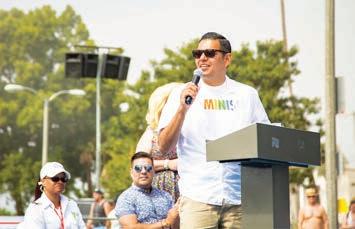
First and foremost, Alleman said, Out for Harris is implementing a robust “national, distributed organizing program [that’s] really oriented around voter contact via phone calls,” which is on track — conservatively — “to do approximately 1.2 million calls before Election Day.”
Alleman added that “the work around these community calls” also involves “taking those calls and turning them to actual organizing that supports their battleground states.” And while “it’s not very sexy,” he stressed that these efforts are “low thrills, high value in terms of talking to voters” because “we are truly committed to getting as many people on the phone that we can across the country, especially in the battleground states, between now and Nov. 5.”
By Oct. 12, he said Out for Harris will have phone banking events every day, “and it’ll
be like community-based; Monday is Broadway night, Tuesday is trans folks for Harris, Wednesday is LGBTQ+ women for Harris, Thursday and Saturday are catch-all for [the Human Rights Campaign],” and Friday is yet to-be-determined. (Volunteers can sign up to participate or learn more about the program at kamalaharris.com/out.)
Alleman shared that during a recent Out for Harris Broadway-themed call, “we had like, 3,000 people in attendance. And I want to say there were like 500 or 600 people trying to phone bank with us, and they have their first canvassing trip into Pennsylvania,” which illustrates how the program is working within the campaign to ensure “that these calls are translating into organizing.”
Acknowledging that the relationship between LGBTQ rights and organized religion is complicated, Alleman said that Out for Harris plans to administer trainings and lead an organizing call for faith leaders who have created safe spaces for LGBTQ people or otherwise been supportive of the community, such that the campaign can “make sure we’re leveraging their congregations to get them involved.”
Along with organizing in-person events, joining Pride celebrations, administering phone banks, and working with high-profile surrogates like Garcia to help boost the campaign’s message in the battlegrounds, Alleman highlighted upcoming moves like Out for Harris’s plans to partner with Democratic National Committee to provide toolkits to drag performers.
The goal, he said, is to provide materials and guidance “so they can do this work on their own, at their shows” such as by displaying QR codes for fans to get involved and providing instructions for how they can register to vote.
To contend with the challenge of navigating a “fragmented media market,” Alleman said, the Harris campaign is focused on “relationships and messaging in all the senses and ways.” This means, for instance, maintaining a strong social media game, dispatching folks to do “the relational organizing on the ground,” and “finding the nontraditional messengers” — like drag queens and faith leaders — while also “hitting everyone where we can” with earned media coverage and paid advertising.
Alleman also noted Harris’s appearance on “RuPaul’s Drag Race” for the “All-Stars” finale in June, another example of how the campaign has been creative and strategic with outreach to LGBTQ voters and allies.

By CLINTON ENGELBERGER
President Joe Biden signed a letter acknowledging Equality Forum’s LGBTQ History Month launch event held on Sunday, writing that, “by celebrating stories of bravery, resilience and joy, your example inspires hope in all people seeking a life true to who they are.”
Malcolm Lazin, Equality Forum executive director, said Biden’s letter is “consequential.” He noted that one year before the White House delivered a proclamation for Black History Month, it issued a letter signed by the president.
“It’s our hope that next year, our nation’s 47th president will issue that proclamation for LGBT History Month,” Lazin said.
Equality Forum is an LGBTQ civil rights organization with an educational focus based in Philadelphia. The group’s work includes coordinating LGBTQ History Month, producing documentary fi lms and overseeing the application for and installation of government-approved queer historic markers.
When spearheading LGBTQ History Month for the fi rst time back in 2006, Lazin said many pushed back against the idea. Some media outlets claimed it was trying to turn straight people gay or promote pedophilia.
But Lazin said the homophobic reactions died down when people were educated on topics that typically weren’t taught in a widespread way.
“We were demonized, marginalized, and vilifi ed,” Lazin said. “One of the certain principal ways you’re going to make headway is if you humanize who we are, and also educate people about the important contributions we make to our common society.”
Education has always been Equality Forum’s solution to societal backlash or controversy since its inception, Lazin said.
The organization got its start in 1993 under the name PrideFest Philadelphia. Lazin, who was the founder, said it was created during a time when Pride parades were the main focus of the LGBTQ community.
In an eff ort to shift focus onto civil rights issues, PrideFest hosted its fi rst LGBTQ summit that eventually transformed into an event featuring national and international organizations. Lazin said it was an eff ort to educate people on LGBTQ history as well as inform the community on queer rights around the world.
Though that event was terminated in 2020, Lazin is still focused on educating both queer and straight people on LGBTQ civil rights. Equality Forum honors 31 “LGBTQ icons” each year for every day in October.
This initiative began when Equality Forum started coordinating LGBTQ History Month back in 2006, but Lazin didn’t notice their eff orts taking off until about fi ve years in.
“In year one, people thought, ‘Oh yeah, those are like
all the important names of the gay community,’” he said. “People paid a little bit more attention the following years, and all of a sudden they’re recognizing, ‘Oh, in a certain sense I was clueless about the role models that the gay community has.’”
This year’s icons being recognized include names like singers George Michael, Luther Vandross, and Sam Smith; pioneering drag queen William Dorsey Swann; “The Bachelor” star Colton Underwood; Wisconsin Congressman Mark Pocan; and longtime Washington Blade Editor Kevin Naff .
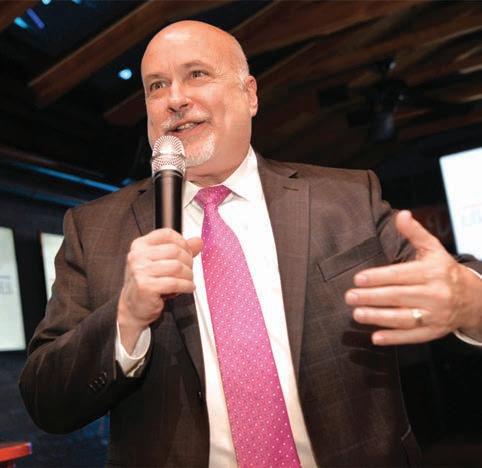
Pocan received the International Role Model Award during Sunday’s LGBTQ History Month launch event. It’s the longest-standing LGBTQ award in the nation, and has been presented to prominent fi gures like former Speaker of the House Nancy Pelosi and U.S. Secretary of Transportation Pete Buttigieg.
He said accepting the award allowed him to refl ect on the progress that’s been made in a relatively short time.
“I was preparing to make some remarks for the event, and I realized that I’ve been kind of in the front row of a lot of the history making in the country, because more of our history is in the last several decades,” Pocan told the Washington Blade. “There are signifi cant moments in the past, but where the real improvements have happened have been more recent.”
In 1995, former President Bill Clinton invited Pocan, who is gay, and other LGBTQ elected offi cials to The
White House for the fi rst time. When they arrived and were going through security, Pocan said they noticed everyone was wearing blue gloves.
Initially assuming it was due to enhanced security following the aftermath of the Oklahoma City Bombing , Pocan said they later discovered the Secret Service agents thought they could contract AIDS from out elected offi cials.
He said the Secret Service issued an apology letter and the Clinton administration made it clear that wasn’t their policy. Even more memorable for Pocan was when then-Vice President Al Gore made it a point to shake everyone’s hands at the event.
Comparing that memory to Biden’s recent letter puts the advancements of LGBTQ rights into perspective for Pocan. He said that’s the reason recognizing and remembering queer history is vital.
“If you don’t know the history, it’s too easy to repeat it,” he said.
The fi ght to recognize the global work done toward advancing LGBTQ civil rights, however, isn’t over, Lazin said.
Many states are working to restrict LGBTQ topics from being taught in schools. Florida Gov. Ron DeSantis signed HB 1069 last year, dubbed “Don’t Say Gay” by critics, to prohibit lessons on sexual orientation and gender identity.
The New College of Florida faced backlash when photos of hundreds of library books, many containing LGBTQ topics, overfl owing a dumpster were shared online . A New College spokesperson said the books were “taken after discovering that the library did not follow all of the state administrative requirements while conducting the routine disposition of materials.”
Despite what the future may hold for LGBTQ content in schools, Lazin said the resources Equality Forum promotes, including the website featuring 31 queer icons in October, are always available.
“At least on this site, students, teachers, and guidance counselors have resources,” he said. “So if you’re an English teacher and you want to be celebrating LGBT History Month, click on poets, or click on authors. You’ve got a whole rich range of people to be able to bring into your curriculum.”
The reality of what LGBTQ History Month has become today is more than the work of one organization; Lazin said it’s the combined eff ort of local communities that are curious about their own history.
“While we could not possibly take on doing the history of all the cities around the country or in North America or around the world, it really has helped to encourage people to appreciate that history and to make sure that it is well documented,” Lazin said.
Celebrating 100 years of local media for and by our community.
The first gay publication in America was 100 years ago this year—1924’s Friendship & Freedom, produced by Henry Gerber. It was shut down by police after just two issues. Through the years, LGBTQ+ media faced similar censorship and hardships. But 100 years later, there is a chance to revitalize this journalism and make it stronger to face the anti-LGBTQ+ backlash, providing critical coverage of this vital part of the U.S. media landscape.
This first year, with one donation, you can support six of the top LGBTQ+ outlets serving our community: n Bay Area Reporter n Dallas Voice n Philadelphia Gay News n Washington Blade n Windy City Times n Tagg Magazine
This project is a program of News Is Out, a collaboration of six of the top local LGBTQ+ media across the country, supported by Local Media Foundation, a 501(C)(3) organization. Tax-deducible donations can be made anytime from now until Oct 8th. Learn more here: givebutter.com/LGBTQequityfund Give today!







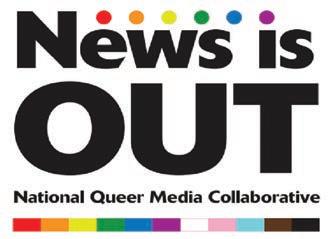


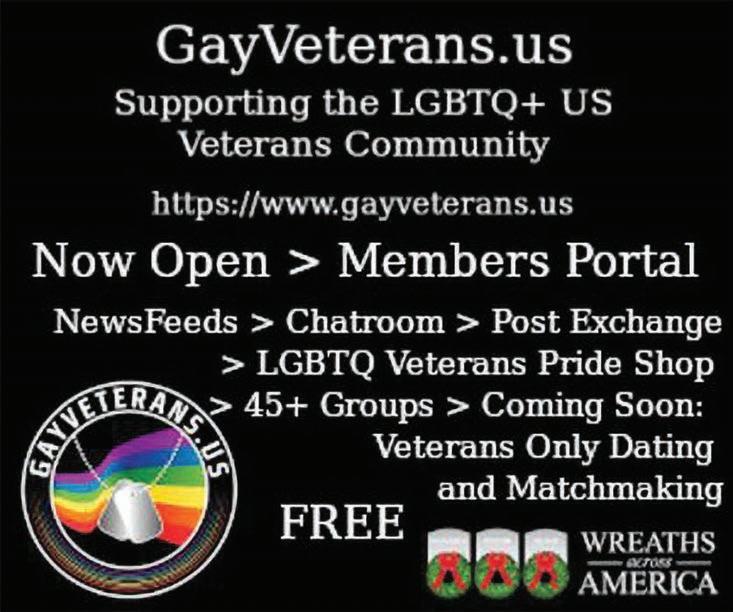

Readers across the country last month observed Banned Books Week, which has taken on added significance amid a surge of censorship efforts.
Banned Books Week, organized by PFLAG and a coalition of other advocacy groups, literary organizations, and educational institutions, seeks to raise awareness about efforts to remove content from public libraries, schools, and bookstores.
The current wave of book bans, which began intensifying in 2021, is driven primarily by conservative groups who disproportionately target titles featuring the voices and experiences of LGBTQ people and people of color.
“This is part of an organized effort to divide our communities by stoking fears against LGBTQ+ people, Black people, and immigrants,” PFLAG Vice President of Advocacy Katie Blair said. “[It] is targeted not only to banning books and censoring schools, but to infiltrating the lives of LGBTQ+ people and those who love them.”
While LGBTQ books have always been a target of book bans, censorship efforts in recent years are more focused on restricting access to LGBTQ content than in the past.
The Washington Post reports “LGBTQ books were the targets of between less than 1 and 3 percent of book challenges filed in schools” from the 2000s to the early 2010s. In 2022, however, 45.5 percent of unique titles that were challenged were written by or about LGBTQ people.
“Book bans have no place in our democracy,” the Congressional Equality Caucus said in a post to its X account.
On the American Library Association’s 2023 list of the 10 most challenged books, seven
books featured LGBTQ voices; with Maia Kobabe’s “Gender Queer,” George M. Johnson’s “All Boys Aren’t Blue,” and Juno Dawson’s “This Book is Gay” topping the list.
The consequences of restricting access to LGBTQ stories and voices are far reaching especially for young people, Blair said.
“These bans contribute to the erasure of our communities and our histories, and all our stories deserve to be told. We believe that all students deserve the freedom to learn. They deserve to be able to develop their critical thinking skills, to be in schools that are open and affirming,” she said.
Deborah Caldwell-Stone, the director of the ALA’s Office of Intellectual Freedom, said another difference in the current wave of censorship is that most calls to censor books in school libraries and public libraries are now driven by organized advocacy groups.
unique titles targeted for censorship. While this number marks a decline from the 1,915 titles challenged during the same period in 2023, it remains far higher than pre-2020 levels, when challenges hovered between 200 and 300 unique titles annually.
Moreover, PEN America, which tracks the total number of book bans rather than unique titles, counted more than 10,000 books that were banned in public schools during the 20232024 school year, nearly triple the amount from the previous year. Both ALA and PEN America’s reports exclude instances of soft censorship, where libraries and organizations preemptively avoid purchasing certain books or restrict access due to fear of potential challenges.

She explained that in the past, most book challenges were initiated by parents and guardians who were concerned about a particular book their child was reading and brought those concerns to a teacher or librarian.
“But now we’re seeing organized groups or their spokespersons showing up at board meetings demanding the censorship of sometimes hundreds of titles all at once. And we’re seeing state legislatures pass laws that are intended to remove hundreds of books, if not thousands of books, all at once, from library shelves,” she said.
Between Jan. 1 and Aug. 31, 2024, ALA’s Office for Intellectual Freedom tracked 1,128
According to PEN America, around 8,000 books were banned in Florida and Iowa alone. Both states passed laws in recent years restricting access to books in schools that depict or describe sex. The vague language of the laws has drawn criticism for exacerbating soft censorship, and has often been interpreted to ban books with discussions of gender and LGBTQ identities.
Vera Eidelman, a staff attorney with the American Civil Liberties Union’s Speech, Privacy, and Technology Project, said, it is “not clear what [the language] means, and that is a problem in and of itself, because if teachers and librarians and other educators face discipline for violating that law, and they don’t know what the law means, that’s a due process problem.”
She noted that the laws have been and are being challenged on grounds of vagueness,
and for violating the First Amendment.
Banned Books Week, which library activist Judith Krug founded in 1982, will culminate in “Let Freedom Read Day” on Saturday, on which organizers urge people to take at least one action to defend the freedom to read, such as participating in this year’s elections.
Caldwell-Stone emphasized the importance of being engaged at all levels of government.
“This is an intensely local issue,” she said. “While we are seeing state legislation intended to engage in broad censorship across the state, primarily these decisions are made at the local level.”
Banned Books Week recommends engaging with school and library administrators, school board and library board members, city councilpersons, and elected representatives at meetings to voice support for access to books. People are also encouraged to attend town halls or rallies to demonstrate opposition to book bans, purchase banned books, and volunteer at local libraries.
Throughout the week, filmmaker Ava DuVernay and student activist Julia Garnett, the honorary chairs of this year’s Banned Books Week, are discussing the various ways people can stand up against censorship attempts in virtual events accessible through the Banned Books Week website.
Libraries across the nation, meanwhile, are hosting readings, art exhibitions, and other activities to educate families about the freedom to read.
Caldwell-Stone recommends those who are interested in countering up to censorship efforts view the action toolkit available at www. uniteagainstbookbans.org and the ALA’s “Reader. Voter. Ready.” guide at www.ala.org

Edafe Okporo, an author and immigrant rights activist, on Sept. 26 headlined the 25th anniversary celebration of the Amica Center for Immigrant Rights, a nonprofit providing legal services to immigrants facing detention and deportation, at the National Museum of Women in the Arts.
Before taking the stage to read from his book “Asylum: A Memoir and Manifesto,” Okporo spoke to the Washington Blade about his experiences as an asylum seeker and the challenges faced by LGBTQ refugees in the U.S. “Immigration detention centers are jails, but special jails for
migrants,” Okporo, who is running for New York City Council, said.
In 2016, he was detained in an immigration detention center in Elizabeth, N.J., for more than five months. He had fled to the U.S. from his home country of Nigeria — which in 2014 criminalized same-sex relationships with penalties of up to 14 years in prison — after being beaten unconscious by a group of people who broke into his apartment and dragged him out onto the street. They had targeted him for helping found an LGBTQ rights organization.
He had imagined the U.S. as a place of safety and refuge, but after informing immigration officers he was seeking asylum, he was detained in a cell with 44 other inmates while officials evaluated his asylum plea.
He eventually won asylum with the help of immigration attorneys, but once he was released from detention, he initially experienced homelessness and a deep sense of isolation.
“In detention centers,” Okporo explained, “it’s hard for you
to be able to have a sense of connection to American society.”
Today, he is the executive director of Refuge America, a nonprofit that aims to limit the time LGBTQ refugees like himself spend in detention centers by organizing Americans sponsors to secure housing and other needs before their arrival. Prior to founding the organization, he was the director of the RDJ shelter, New York City’s only full-time refuge for asylum-seekers and refugees.
Okporo noted that integrating into life in America can be especially challenging for LGBTQ refugees, many of whom come from countries where they had to hide their sexual orientation or gender identity. This often makes it difficult for them to open up and seek the services they need.
“They are thinking within the hierarchy of needs. ‘Can I tell the service provider that I’m gay?’ Then, ‘Can I tell them I’m HIV positive?’ Then, ‘Can I tell them that I need testosterone hormones?’” Okporo said.
ERKKI FORSTER



































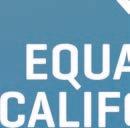






A mechanism to spread discriminatory policies
Around the country, Women’s Bills of Rights (“Women’s BoRs”) have emerged as a mechanism to spread anti-transgender policy under the guise of women’s rights. These laws redefine terms like gender, sex, woman, and man to binary definitions that exclude protections and recognition of transgender, nonbinary, and in some contexts, intersex individuals. The focus of these laws is on public institutions and facilities, such as restrooms and changing rooms.
What do these laws mean for students and employees of public institutions, such as public schools and government agencies? How may private employers react to these laws? We will dive into the rise of Women’s BoR laws, their impact on workplace protections, and what we can expect with the rise of anti-transgender policies.
In early 2022, Independent Women’s Voice and the Women’s Liberation Front introduced the Women’s BoR as model legislation seeking to limit legal recognition of sex to one’s sex assigned at birth. While both groups identify as women’s advocacy organizations, Independent Women’s Voice and the Women’s Liberation Front have long sought to limit the rights of transgender Americans as a primary area of focus. The Women’s BoR entered mainstream politics when Republicans in the House of Representatives and Senate attempted to endorse the legislation in a resolution in 2022. While federal attempts to pass a national Women’s BoR have not been successful, states have begun to adopt similar bills. Throughout 2023 and 2024, state legislators in Kansas, Louisiana, Montana, Mississippi, Oklahoma, Tennessee, and Utah enacted statutes based on the federal bill.
Advocates frame Women’s BoR as supporting women, but they do not positively affect or protect cisgender or transgender women; in actuality, their only impact is to exclude transgender Americans from legal recognition and erase the experience of nonbinary and intersex individuals. In light of this worrisome impact, transgender, nonbinary, and intersex people may wonder what protections they have in workplaces if their state has passed a Women’s BoR.
Each state’s Women’s BoR is unique depending on what laws it sought to amend and how far-reaching its impact will be, but clear throughlines exist nationwide. Transgender, nonbinary, and intersex employees are affected by the redefinition of terms including sex, gender, men, and women, as legislators use outdated and transphobic lenses to categorize individuals and essentially erase any protection of those who do not identify as cisgender women or men. Furthermore, some of these bills place legal consequences on transgender, nonbinary, and intersex employees who use public facilities that align with their gender identity. For example, under the Louisiana Women’s Safety and Protection Act, an individual who alleges they have suffered “any direct or indirect harm as a result of a violation of” this law may file a lawsuit against the party in violation for relief that may include injunctive relief (a court order to do something or to stop doing something) and attorney fees, damages, and costs associated with the lawsuit. The state seems to be incentivizing these cases by waiving a procedural hurdle that is usually required to get an injunction.
What do these bills mean for transgender, nonbinary, or intersex employees that are employed in states that have enacted a Women’s BoR? If the individual is employed by a state government, public school, or another form of public institution, that institution may take the position that only cisgender employees are protected by the
DACEY ROMBERG, MADISON ZUCCO, LUKE LAMBERTI, and XAN WOLSTENHOLME-BRITT
are with Sanford Heisler Sharp.
state’s anti-discrimination laws, which they may now interpret as only applying to cisgender women and men.
Oklahoma’s Women’s BoR states that “any policy, program, or statute that prohibits sex discrimination shall be construed to forbid unfair treatment of females or males in relation to similarly situated members of the opposite sex.” By stating that laws only forbid “unfair treatment of females or males,” the bill may result in transgender, nonbinary, and intersex employees no longer being covered by the Oklahoma Anti-Discrimination Act. Montana similarly appears to have passed legislation that limits “sex discrimination” to only males and females, which could be interpreted as removing transgender, nonbinary, or intersex individuals from the protections of the Montana Human Rights Act.
These employees may still be protected by federal anti-discrimination laws, though, including Title VII of the Civil Rights Act, which prohibits employment discrimination based on gender identity. For instance, if a transgender employee is barred by their employer from using the office locker room that aligns with their gender identity, they may be able to establish a Title VII violation. Similarly, a Title VII or Affordable Care Act violation may be established where a transgender employee is denied coverage for gender-affirming care but cisgender employees are covered for the same procedure or treatment.
Though not all have been labeled Women’s BoR, more than 40 “re-definition” bills were introduced in state legislatures this year, according to the ACLU, marking a significant increase in this type of legislation. This indicates a concerted effort by certain political groups to roll back protections and recognition for transgender and nonbinary individuals. This legislative push not only threatens to erode hard-won rights but also fosters a climate of discrimination and exclusion. As these bills have gained traction in the past few years, it becomes increasingly important for employers and allies to stay informed and engaged to protect and advance the rights of transgender and nonbinary individuals at both the state and national levels.
It is essential for public and private employers to understand the implications of these laws and how they might affect their workforce. When possible, employers should be proactive in counteracting harmful policies by incorporating specific protective language into their company policies and providing robust support systems for their transgender, nonbinary, and intersex employees. This could involve conducting informational sessions to ensure that employees know their rights and the potential impacts of these laws.
While public employers in states that have passed Women’s BoRs may be more limited in how they can support their transgender, nonbinary, and intersex employees, private employers can support their employees by implementing inclusive policies and practices such as anti-discrimination policies that explicitly protect gender identity and expression; providing comprehensive healthcare benefits that cover gender-affirming treatments and ensuring that facilities, such as restrooms, are accessible to all employees. Additionally, providing support networks, such as employee resource groups, and ensuring that all employees are aware of and have access to these resources can significantly enhance the sense of belonging and safety for transgender, nonbinary, and intersex employees. By doing so, employers can create a more inclusive and supportive work environment, helping to mitigate the negative effects of these legislative changes on their employees.
ADDRESS
8237 Blackburn Avenue Ste. 201, Los Angeles, CA 90048
PHONE 310-230-5266
E-MAIL tmasters@losangelesblade.com
INTERNET losangelesblade.com
PUBLISHED BY Los Angeles Blade, LLC
PUBLISHER
TROY MASTERS tmasters@losangelesblade.com, 310-230-5266 x8080
SALES & ADMINISTRATION
SALES EXECUTIVE
SHANA WONG SOLARES swong@losangelesblade.com, 808-386-0872
NATIONAL ADVERTISING
RIVENDELL MEDIA sales@rivendellmedia.com, 212-242-6863
MARKETING DIRECTOR
STEPHEN RUTGERS srutgers@washblade.com, 202-747-2077 x8077
EDITORIAL
CONTRIBUTING WRITER
KAREN OCAMB karenocamb@losangelesblade.com
NATIONAL EDITOR
KEVIN NAFF
kna @washblade.com, 202-747-2077 x8088
EDITOR
KEVIN NAFF
Washington, D.C.
CONTRIBUTORS
MICHAEL K. LAVERS, TINASHE CHINGARANDE, ERNESTO VALLE, YARIEL VALDÉS GONZALEZ, PARKER PURIFOY, CHRISTOPHER KANE, AUSTIN MENDOZA, JOHN PAUL KING, JOEY DIGUGLIELMO, CHRIS JOHNSON, LOU CHIBBARO JR., REBEKAH SAGER, JON DAVIDSON, SUSAN HORNIK, CHANNING SARGENT, SAMSON AMORE, CHRISTOPHER CAPPIELLO, MICHAEL JORTNER, DAN ALLEN, SEAN SHEALY, SCOTT STIFFLER, RHEA LITRÉ ADMINISTRATION
PHILLIP G. ROCKSTROH prockstroh@washblade.com, 202-747-2077 x8092
CREATIVE DESIGN/PRODUCTION
AZERCREATIVE.COM
DISTRIBUTION
CHRISTOPHER JACKSON, 562-826-6602 All material in the Los Angeles Blade is protected by federal copyright law and may not be reproduced without the written consent of the Los Angeles Blade. e sexual orientation of advertisers, photographers, writers and cartoonists published herein is neither inferred nor implied. e appearance of names or pictorial representation does not necessarily indicate the sexual orientation of that person or persons. Although the Los Angeles Blade is supported by many ne advertisers, we cannot accept responsibility for claims made by advertisers. Unsolicited editorial material is accepted by the Los Angeles Blade, but the paper cannot take responsibility for its return. e editors reserve the right to accept, reject or edit any submission. A single copy of the Los Angeles Blade is available from authorized distribution points, to any individual within a 50-mile radius of Los Angeles, CA. Multiple copies are available from the Los Angeles Blade o ce only. Call for rates. If you are unable to get to a convenient






is executive director of the HIV+Hepatitis Policy Institute.
A historic opportunity to help end the disease
The Biden-Harris administration has a historic opportunity to help end HIV. New, cutting-edge drugs that prevent HIV are hitting the market, but insurance companies are trying to twist the rules to deny access to these remarkable therapies.
The White House could stop these abuses and put the country on the right course for decades ahead and prevent hundreds of thousands of new HIV transmissions.
Pre-Exposure Prophylaxis (PrEP) drugs represent one of the strongest tools we have to combat HIV. These highly eff ective therapies can reduce the risk of contracting HIV by up to 99%. So far, the FDA has approved two once-daily PrEP pills, and in 2021 approved the fi rst long-acting version of PrEP. Other groundbreaking PrEP innovations, such as a biannual dosage form, are in active development.
PrEP is a major reason why new HIV infections dropped 12% from 2018 to 2022. Yet there’s still work to do. Currently, just 36% of people who could benefi t from PrEP are using it. Racial and ethnic groups face wide disparities in PrEP uptake. For example, Black individuals constitute 39% of new HIV diagnoses but only 14% of PrEP users. Hispanics make up 31 percent of new HIV diagnoses, but only 18 percent of PrEP users.
A new federal directive, if properly enforced, could help close these gaps. In August 2023, a panel of prevention experts issued an updated recommendation to clinicians, recommending PrEP — including long-acting forms of the drugs — to people who want to prevent HIV acquisition. Under the Aff ordable Care Act, most newly issued private health plans must cover without patient cost-sharing to comply with this recommendation beginning this month.
HIV infections compared to those using oral pills. Another analysis calculated that long-acting PrEP could help avert 87% more HIV cases than oral pills, and could save over $4 billion over the course of a decade.
Another concern relates to insurers’ increasing use of “prior authorization,” a practice in which health plans refuse to cover certain drugs unless doctors obtain prior permission. Insurers could also force patients to try a number of therapeutic alternatives before agreeing to cover the medicine they and their doctors agreed upon — this is known as “step therapy.” There’s evidence that “prior authorization” policies may disproportionately impact Black and Hispanic individuals, who are already at higher risk of HIV.
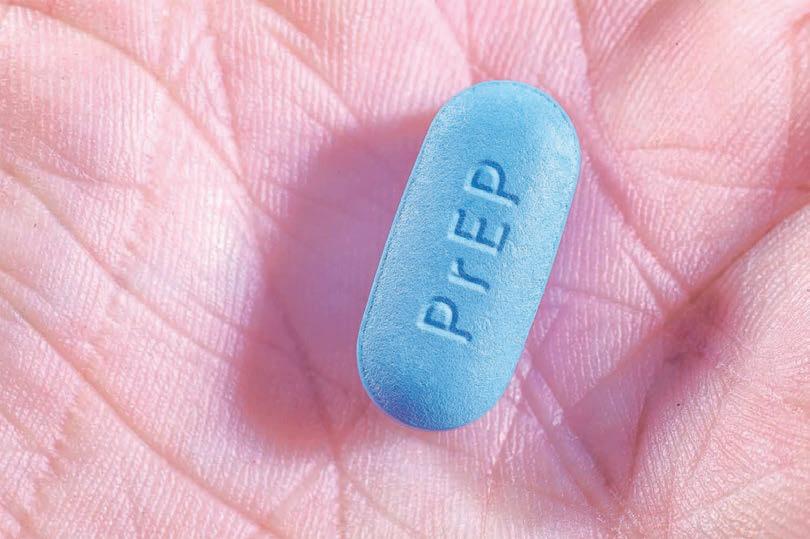
Fortunately, these insurer-imposed barriers aren’t inevitable. The Biden-Harris administration, through the Centers for Medicare & Medicaid Services (CMS), has an opportunity to issue clear, detailed guidance that ensures health plans follow through on the legal requirement to cover PrEP for all eligible patients and at no cost. CMS’s guidance should clarify that insurance companies are obliged to cover all FDA-approved versions of PrEP, including both daily pills and long-acting injectables. When now Vice President Harris was Sen. Harris, she introduced groundbreaking legislation called the PreP Access and Coverage Act, which would require all insurers to cover all forms of PrEP without cost-sharing and prior authorizations. So we know where she stands on the issue.
A number of states, including New York and California, have already established similar coverage requirements and prohibitions on prior authorizat ion for PrEP.
Yet many HIV experts and patient advocates have raised concerns that insurers could misinterpret — or downright ignore — the task force’s decision and keep barriers to PrEP in place.
One top concern is that insurance companies could decide to cover only one kind of PrEP, even though the task force’s recommendation isn’t drug-specifi c — it applies to all versions. For example, a health plan might refuse to cover long-acting PrEP and force patients to take oral pills instead.
Yet long-acting PrEP is a critical option for many patients, such as those who struggle to adhere to once-daily drug regimens, are unhoused, or have confi dentiality concerns. One study found that patients taking long-acting PrEP had a 66% reduction in
A similar requirement already exists for contraception. Plans are required “to cover without cost sharing any contraceptive services and FDA-approved, -cleared, or -granted contraceptive products that an individual’s attending provider determined to be medically appropriate.”
CMS just needs to adopt language along these lines for PrEP. Doctors — not insurance companies — should decide which drugs best suit patients’ needs.
Thanks to revolutionary research happening every day, people with a reason to be on PrEP have more options available to them than ever before. Yet insurers are intent on restricting access to these innovative therapies. New federal guidance can help combat this and if properly enforced set us on a path toward ending HIV.
After suicidal thoughts, attacks from far right, a roadmap to
In 2017, Jon Paul was suicidal. In nearly every place Paul encountered, there were signs that consistently reminded the transgender community that their presence in America by the far right is unwelcomed.
Former President Donald Trump’s anti-trans rhetoric is “partly” responsible for Paul’s suicidal contemplation.
“I’m driving out of work, and I’m seeing all of these Trump fl ags that are telling me that I could potentially lose my life over just being me and wanting to be who I am,” Paul said. “So, were they explicitly the issue? No, but did they add to it? I highly would say yes.”
During Trump’s time as president, he often disapproved of those who identifi ed as transgender in America; the former president imposed a ban on transgender individuals who wanted to join the U.S. military.
“If the world keeps telling me that I don’t have a reason for me to be here and the world is going to keep shaming me for being here. Then why live?” Paul added.
The rhetoric hasn’t slowed and has been a messaging tool Trump uses to galvanize his base by saying that Democrats like Vice President Kamala Harris “want to do transgender operations on illegal aliens that are in prison.” Trump made that claim at the presidential debate against Democratic presidential nominee Kamala Harris.
Not only do Trump’s actions hurt Paul, but they also aff ect 17-year-old Jacie Michelleé, a transgender person at Friendly Senior High School.
“When former President Donald J. Trump speaks on transgender [individuals] in a negative light, it saddens my heart and makes me wonder what he thinks his personal gain is from making these comments will be,” Michelleé said.
“When these comments are made toward trans immigrants or the transgender community, it baffl es me because it shows me that the times are changing and not for the better,” Michelleé added.
By EDEN HARRIS
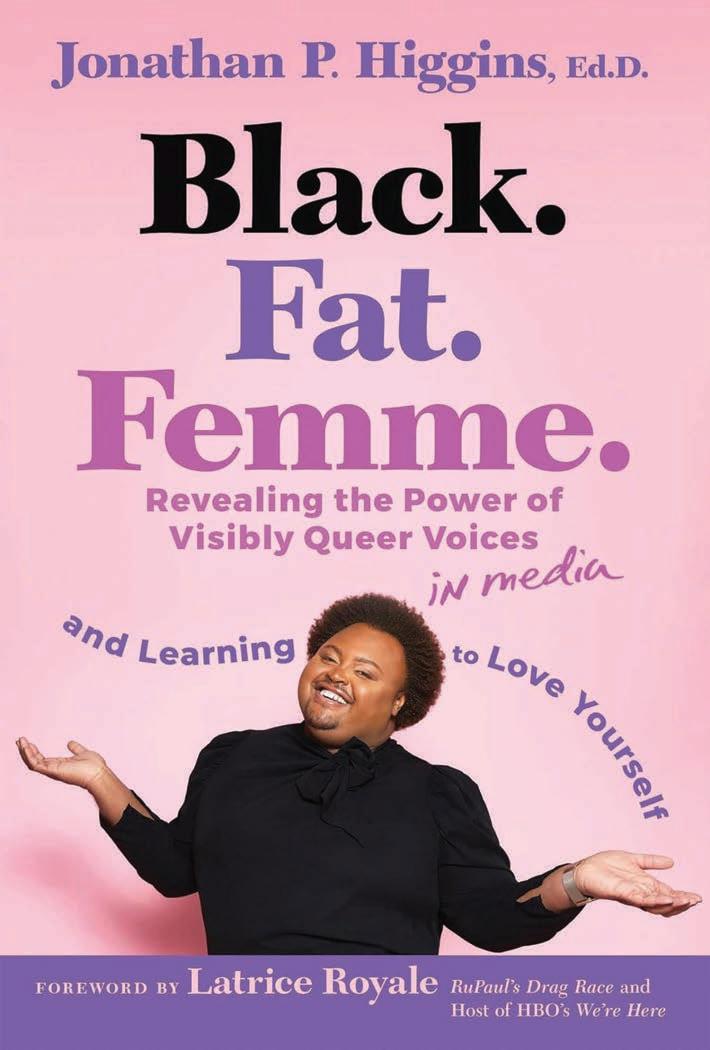
The Congressional Black Caucus Foundation responded to Trump’s rhetoric that opposes the transgender community and how it aff ects democracy through programming at its Annual Legislative Conference in Washington.
“Our agendas are not set by what other groups are saying we should or shouldn’t do. It is set by our communities and what we know the needs and the most pressing needs are for the Black community, and we know that our global LGBTQAI+ communi-
ties have needs; they are a part of our community,” said Nicole Austin-Hillery, president and CEO of the Congressional Black Caucus Foundation.
One pressing need is suicide prevention, which the National Institute of Health deems necessary, as 82% of transgender individuals have reported having suicidal thoughts, while 40% have attempted suicide. This research applies to individuals like Paul, who reported contemplating suicide.
But instead of choosing to self-harm, Paul met Latrice Royale, a fourth-season contestant on “RuPaul’s Drag Race,” who was awarded the title of Miss Congeniality while on the show. Paul said that meeting brought meaning when there was barely any left.
“It was like I met them at a time where I really, truly, not only needed to see them, but I needed to be able to actively know ‘girl’ you can live and you can have a really a good life, right? And Latrice was that for me,” Paul said.
Though Trump is representative of a lot of movements that are clashing with society, the Democratic Party is actively pushing back against anti-transgender movements and says there is “still much work to be done.”
Not only did Royale model success for Paul, but they also share the same appearance. Paul proudly identifi es as “fat” and uses this descriptor as a political vehicle to empower others in the book “Black Fat Femme, Revealing the Power of Visibly Queer Voices in the Media and Learning to Love Yourself.”
“My book, my work as a Black, fat femme, is inherently political. I say this at the very front of my book,” Paul said. “All three of those monikers are all three things in this world that the world hates and is working overtime to get rid of.”
“They’re trying to kill me as a Black person; they’re trying to get rid of me as a fat person. They are trying to get rid of me as a queer person,” Paul added.
Besides Paul’s political statements, the book’s mission is to give those without resources a blueprint to make it across the fi nish line.
“I want them to look at all the stories that I share in this and be able to say, ‘wow,’ not only do I see myself, but now I have a roadmap and how I can navigate all of these things that life throws at me that I never had, and I think that’s why I was so passionate about selling and writing the book,” Paul said.
‘Will and Harper’
Funny, intimate, honest, and irresistibly heart-tugging
By JOHN PAUL KING
It’s hard to think of a film genre as flexible as the “buddy road trip” movie. After all, it’s adaptable to almost any imaginable combination of buddies, and can easily be framed around a journey to any destination, for any purpose. It can be a comedy, a drama, a thriller, even a sci-fi or fantasy tale. Until “Will and Harper,” however, we never thought there could be a “buddy road trip” documentary.
Yet that is exactly what the Josh Greenbaum-directed film, which premiered at this year’s Sundance Festival and was promptly acquired by Netflix for distribution, manages to become, at least partly by design. And the fact that one of the buddies is none other than Will Ferrell – a beloved “Saturday Night Live” alumnus and one of Hollywood’s most enduring and popular comedic stars – makes it almost impossible to see any other way.
Not that there’s anything wrong with that. “Will and Harper” uses its star power to great effect (and affect), following likeably oafish “everyman” Ferrell as he sets out on a cross-country drive with comedy writer Harper Steele, whom he met when they were both hired for “Saturday Night Live” in 1995 and went on to become one of his closest friends. The twist? Steele, after years of presenting as male, came out as a trans woman during the COVID pandemic, and their trip is undertaken as a way to forge a new path forward in their friendship. The pair, uncertain about the new “ground rules” in their once-comfortable camaraderie, ask the difficult questions, make the uncomfortable confessions, and talk about the things any reasonable person and their newly transitioned bestie have to talk about in order to clear the way for a new dynamic – and, perhaps unsurprisingly, find that the dynamic is still the same, even if some of the pronouns have been rearranged.

That’s only half the story, though; while there’s never really any tension between Ferrell and Steele over the latter’s embrace of her trans identity, nor even any moment when either seems to question their commitment to the friendship, their journey takes place during a drive through the “heartland” of a deeply divided America, in which Ferrell’s celebrity status offers some protection as Steele attempts to overcome her fears of entering the kind of spaces – sports events, dive bars, greasy spoon diners, etc. – she felt safe
entering as “Andrew.” While she and Ferrell mostly experience a heartening amount of acceptance from those they encounter along the way, the ugliness of the social media commentary their appearances spark in real time underscores the menace of a deeply entrenched transphobia pervading the darker sectors of our culture.
Even so, Greenbaum shapes his movie – filmed across the real-life 17-day road trip and comprised entirely of unscripted material – not around the politically charged (and perpetuated) debate around trans people’s right to exist, but around the one-on-one effort between two human beings to understand – and figure out where they stand with – each other so they can evolve and adapt their relationship as they go. And while the “hate tweets” rising in the friends’ wake are a depressing reminder of how much bigotry seethes behind the firewalls of our culture’s algorithm-driven public conversation, the ease and natural flow of their adaptation to the new parameters of their friendship is a powerful counterbalance to the potential “downer” represented by the essentially anonymous commentary and judgments from trolls hiding behind a keyboard. As these two make self-evident, accepting a few new pronouns is really not all that difficult, nor does it need to spark a full-scale existential crisis – and the things that constitute real human connection, the inside jokes and shared experiences and unfiltered feelings that pass between us, as well as the love we feel when we find ourselves truly in harmony with each other, are far more real than the fear-mongering suppositions of the idealogues for whom conformity to the dictated norm is the only “right” way to live one’s life.
Still, on the cusp of an election in which trans and queer rights and protections are very much at stake, it’s important to remember that such trolls have a vote; though they may not be willing to show themselves publicly without a “user name,” they have no qualms expressing their bigotry at the ballot box, which means that “Will and Harper” couldn’t have come at a more appropriate time.
Even if one might quibble over the documentarian “purity” of a film that obviously employs improvisational comedic skills (while the filmmakers’ original notion of manufacturing comedic moments for the camera was abandoned in favor of a more organic approach, there’s no plausible deniability to the observation that two career funny-people are going to be playing toward a punch line whether it’s scripted or not), its populist leanings toward humor, apolitical values, and feel-good sentimentality give it a power to persuade that many more glaringly activist pro-trans documentaries mostly fail to achieve within a mainstream culture that is unlikely to even watch in the first place. Perhaps even more deeply, its focus on negotiating matters of gender identity and personal autonomy for the benefit of all affected parties resonates as a call to set aside vitriol, rhetoric, and “culture warfare” for the sake of simply dealing with each other as humans, each still on a path of becoming who we are eventually intended – by ourselves, at least, whether consciously or not - to be.
In any case, many fans of Ferrell (who co-produced the film himself) might find themselves conflicted over seeing “Will and Harper” without the MAGA-colored bias that would require them to decry it as “woke propaganda”, and frankly, that’s an inevitable consequence of taking a stand for basic human decency. But it’s also his fearless and unequivocal willingness to support and accept his friend that makes the film such a powerful statement. In truth, even if you’ve never been a particular fan of Ferrell or fully understanding of his appeal, this disarming (if occasionally sentimental) gem of a documentary/improv comedy has odds that say you’ll be a fan by the time the final credits roll.
Funny, intimate, honest, and irresistibly heart-tugging, it’s one of those movies that feels almost like mandatory viewing for queer and queer-friendly audiences. Add the appeal of guest appearances from former-and-current “SNL” players like Seth Meyers, Tina Fey, Kristen Wiig, Colin Jost, Will Forte, Molly Shannon, Tim Meadows, and Paula Pell, and you have the pop documentary of the moment, a testament to unconditional love and acceptance that deserves to be near the top of your fall watch list
Originally given a limited theatrical release in September, “Will and Harper” is now streaming on Netflix.
How can I help him when he lashes out?
By MICHAEL RADKOWSKY
Hi Michael,
I’ve been best friends with Chris since we were kids. We’re both gay and both wound up in D.C. after college. And we’re roommates.
The trouble started about a year and a half ago. Chris, who has always liked working out, started getting absorbed in bodybuilding.
He started spending hours a day working out and all these weird powders and supplements started piling up in the kitchen.
Chris became obsessed with building muscle. When he told me he was trying steroids, I told him that was a bad idea but he told me he was doing it under medical supervision and I shouldn’t worry.
In recent months he’s a changed person. He’s short with me a lot, angers easily. He got into a few screaming matches with Matthew, his boyfriend, that I overheard. He sounded paranoid and out-of-control. Guess what? Matthew walked out on him.
I’m not proud but I did a little snooping (basically looked in his bathroom) - and the stuff was everywhere.
Last week he lost his job. He wouldn’t tell me why but I am pretty sure it’s due to his increasingly weird and angry behavior. I told him that—and told him that I know he’s using a lot more than he should (is any amount OK?)—and he majorly blew up at me. Now he’s not talking to me and he texted me I should move out and not wait until our lease is up.
I don’t know what to do. I love Chris deeply—but it seems like the guy I’ve known for 20 years is gone and has been replaced by a mean paranoid guy who is driving his life off a cliff.
I’m wondering about letting his parents know. I’ve known them since childhood and I’m hoping they can talk some sense into him. Or an intervention with all his friends (none of whom he is speaking to anymore for one reason or another, but the real reason is his crazy behavior). Maybe we could confront him and get him to stop.
But I’m not sure what the right thing to do is and don’t want to alienate him completely. Any thoughts or ideas for a good strategy?
Michael replies:
I’m sorry, I know it’s excruciating to watch someone you love struggle with addiction. I don’t think you can get Chris to stop or moderate his use.
You have shared your concerns with Chris, and he’s blown up at you. This is not a guy who wants to look at his life choices critically.
You could tell his parents, but you have to weigh the risks versus benefits. Maybe they would be able to influence Chris to cut back on his steroid use. Or maybe he’d just cut himself off from them as well, further deepening his isolation, and perhaps leading to his being even less tethered to reality.
I would make similar points about an intervention: Sometimes they have a positive impact on the person who is being confronted. Sometimes they don’t do much except rile

My best friend is addicted to steroids and alienating everyone in his life.
the person up, and lead him or her to dig further into denial and isolation.
My own experience is that interventions have a greater chance of being helpful when the person can acknowledge the unmanageability of the addiction and is willing to try something different. Chris doesn’t sound like he is anywhere near that point.
Simply put, there’s no easy fix to this, because only Chris gets to decide how he wants to live his life, even if his choices are ruinous.
Here’s what you can do:
First, if Chris starts talking to you again, be supportive without being enabling. This means not criticizing him or telling him what to do; letting him know that you care about him and are there to help if he wants help; not joining him in minimizing the seriousness of his situation; and having a boundary when necessary.
For example:
If there are times when he is pleasant to be with, enjoy them.
If he’s snapping at you for no reason, you can say “hey, it’s not fun to be with you when you’re like this—I’ll see you later.”
If he’s lamenting his job loss, you might reply, “I’m sorry you lost your job—and I’m sure you could take steps to suc-
ceed in another job.”
If he attempts to start an argument with you about how his steroid use is not a problem, or that you’re blowing it out of proportion, don’t join the argument. “Sorry, I see it differently, and I’m not going to argue with you about this.”
If he continues to not speak to you, you can still continue to reach out to him now-and-then, in ways that don’t require him to respond, to let him know you that you’ll be there for him if he needs help at some point.
One more thing you can do is get some support for yourself. This is a tough situation for you as well. It’s easy for someone in your situation to feel like you’re doing the wrong thing, no matter what you do.
I’d suggest that you attend at least a few Al-Anon meetings. Al-Anon is a support fellowship for people whose loved ones are struggling with addiction. You’ll get support in recognizing that there really are limits to what you can do; in setting a boundary when you need to; and in knowing that you are not alone.
(Michael Radkowsky, Psy.D. is a licensed psychologist who works with couples and individuals in D.C. He can be found online at michaelradkowsky.com. All identifying information has been changed for reasons of confidentiality. Have a question? Send it to michael@michaelradkowsky. com.)
CONSUMER CELLULAR
the same reliable, nationwide coverage as the largest carriers. No longterm contract, no hidden fees & activation is free. All plans feature unlimited talk & text, starting at just $20 per month. For more information, call 1-844-908-0605
AUTOS WANTED
DONATE YOUR VEHICLE to fund the SEARCH FOR MISSING CHILDREN. FAST FREE PICKUP. 24 hour response. Running or not. Maximum Tax Deduction & No Emission Test Required! Call 24/7: 1-877-434-6852.
GOT AN UNWANTED CAR??? DONATE IT TO PATRIOTIC HEARTS. Fast free pick up. All 50 States. Patriotic Hearts’ programs help veterans find work or start their own business. Call 24/7: 1-855-408-6546.
Get a break on your taxes!
Donate your car, truck, or SUV to assist the blind & visually impaired. Arrange a swift, no-cost vehicle pickup & secure a generous tax credit for 2025. Call Heritage for the Blind at 1-844-491-2884 today!
Tiene un vehiculo no deseado? Donelo a Patriotic Hearts! Recogida rapida y gratuita en los 50 estados. Patriotic Hearts ofrece programas para ayudar a los veteranos a encontrar trabajo o iniciar su propio negocio. Llama ahora: 1-855-408-7368 24/7
Struggling with debt? If you have over $10,000 in debt we help you be debt free in as little as 24-48 months. Pay nothing to enroll. Call Now: 1-877-435-4860.
BATH & SHOWER
UPDATES in as little as ONE DAY! Affordable prices - No payments for 18 mos. Lifetime warranty & professional installs. Senior & Military discount. 1-877-252-9868
Eliminate gutter cleaning forever! LeafFilter, the most advanced debris-blocking gutter protection. Schedule a FREE LeafFilter estimate today. 20% off Entire Purchase. 10% Senior & Military Discounts. Call 1-855-424-7581
Jacuzzi Bath Remodel can install a new, custom bath or shower in as little as one day. For a limited time, waving ALL installation costs! (Additional terms apply. Subject to change & vary by dealer. (Offer ends 12/29/24). Call 1-833-985-4766
Safe Step. North America’s #1 Walk-In Tub. Comprehensive lifetime warranty. Now featuring our FREE shower package & $1600 Off for a limited time! Call today! Financing available. Call Safe Step 1-888-989-5749
Don’t pay for covered Home Repairs Again! Our home warranty covers ALL Major Systems & Appliances. We stand by our service & if we can’t fix it, we’ll replace it! Pick the plan that fits your budget! Call 1-855-411-1731
DENTAL INSURANCE from Physicians Mutual Insurance Company. Coverage for 400 plus procedures. Real dental insurance - NOT just a discount plan. Do not wait! Call now! Get your FREE Dental Information Kit with all the details! 1-844-203-2677
www.dental50plus.com/ calnews #6258
RETIRED COUPLE $$$$ for business purpose
Real Estate loans. Credit unimportant. V.I.P. Trust Deed Company www. viploan.com Call 1-818-248-0000. Brokerprincipal DRE 01041073.
WATER DAMAGE CLEANUP & RESTORATION: A small amount of water can lead to major damage. Our trusted professionals do complete repairs to protect your home’s value. Call 24/7 1-888-248-0815
Want Residual Income? Turnkey Established Vending Massage Chair single location or Route for Sale! Asking Price: From $2,500 to $29,000 per location. text only: (949) 381-9899
DID YOU KNOW Newspaper-generated content is so valuable it’s taken & repeated, condensed, broadcast, tweeted, discussed, posted, copied, edited, & emailed countless times throughout the day by others? Discover the Power of Newspaper Advertising. For MORE INFORMATION call 916-288-6011 or email cecelia@cnpa.com





